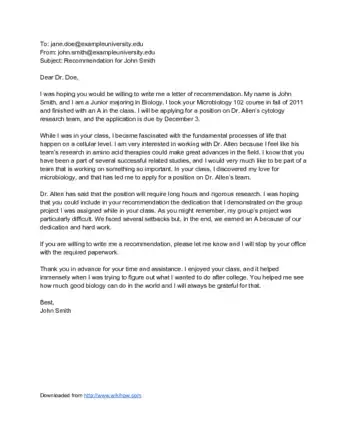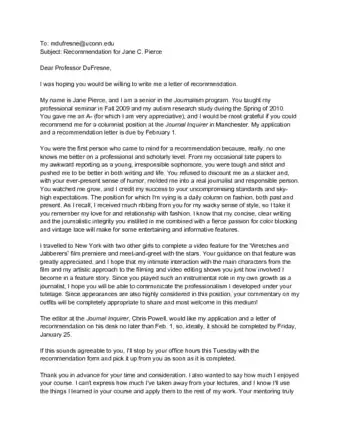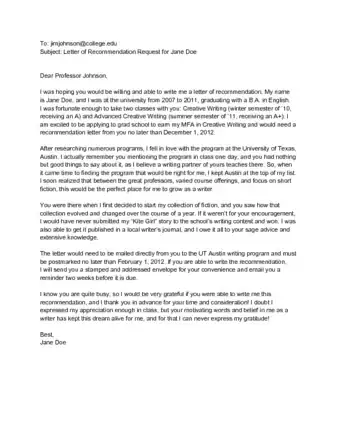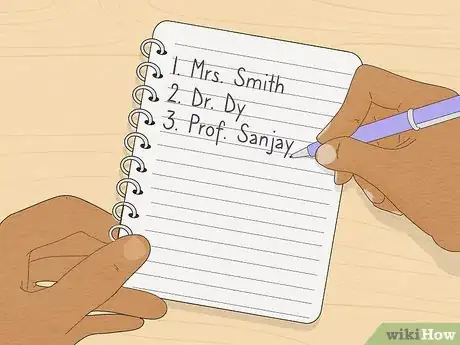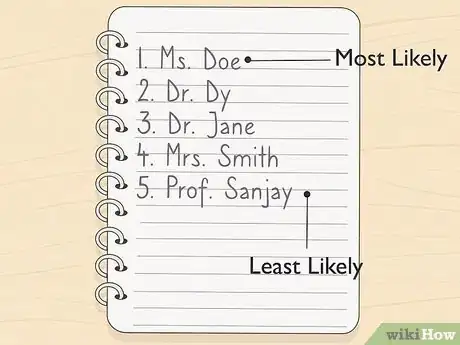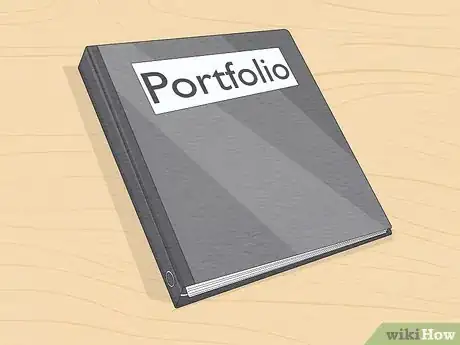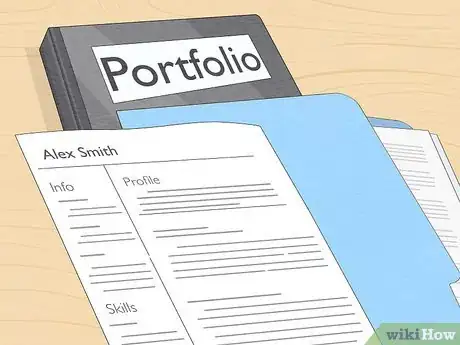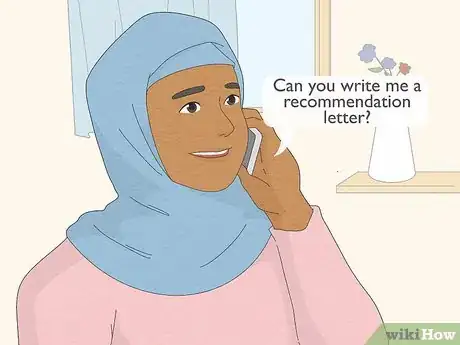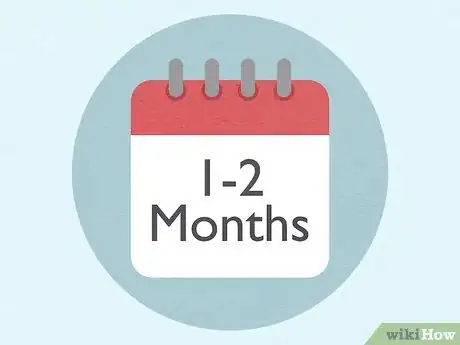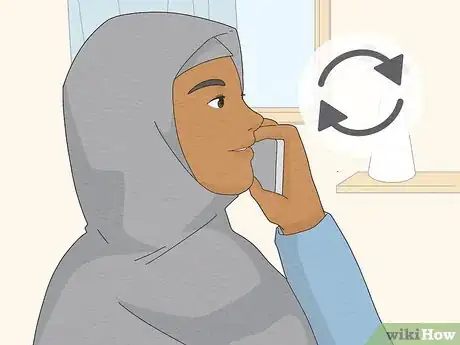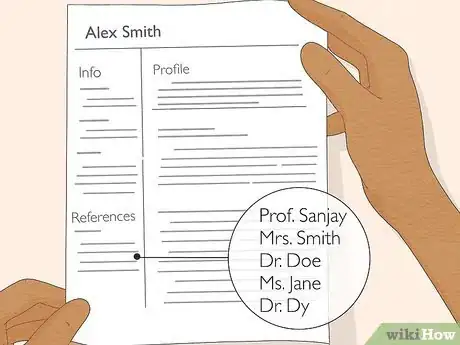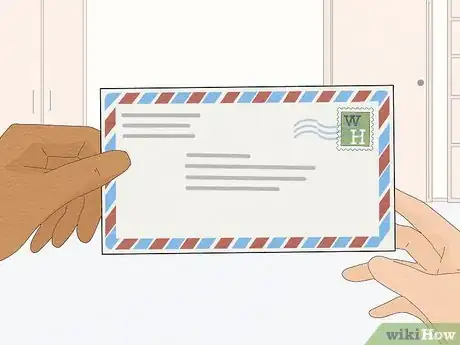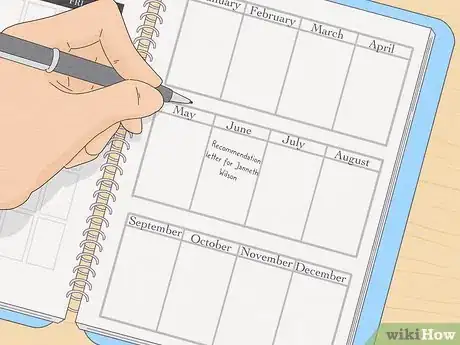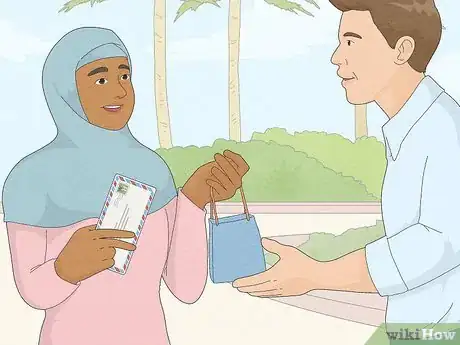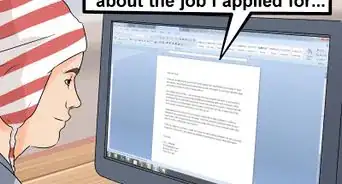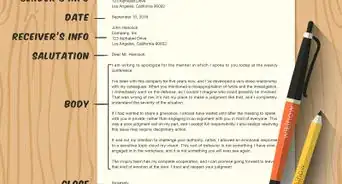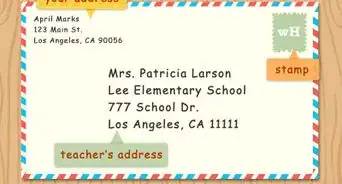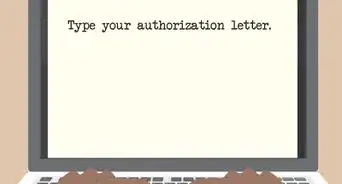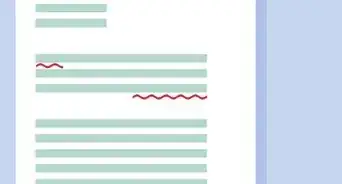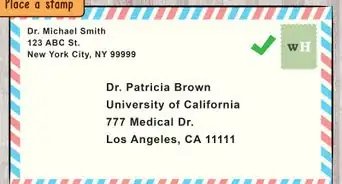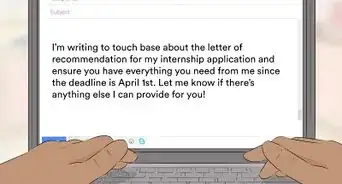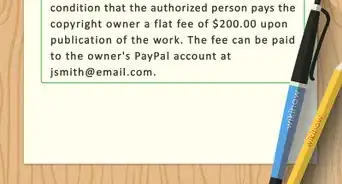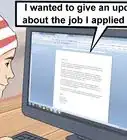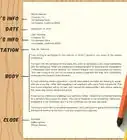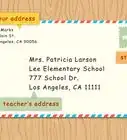This article was co-authored by Alexander Ruiz, M.Ed.. Alexander Ruiz is an Educational Consultant and the Educational Director of Link Educational Institute, a tutoring business based in Claremont, California that provides customizable educational plans, subject and test prep tutoring, and college application consulting. With over a decade and a half of experience in the education industry, Alexander coaches students to increase their self-awareness and emotional intelligence while achieving skills and the goal of achieving skills and higher education. He holds a BA in Psychology from Florida International University and an MA in Education from Georgia Southern University.
There are 8 references cited in this article, which can be found at the bottom of the page.
This article has been viewed 224,021 times.
Whether you are applying to an academic program, you are a recent graduate seeking a job in your chosen field, or you are an experienced professional with a robust resume seeking a position in academia or business, knowing who and how to ask for a recommendation letter can help you reach your goals.
Steps
Sample Request
Finding Potential Recommenders
-
1Write out a complete list of possibilities. Try to think of everyone who might be willing to write you a positive letter of recommendation in your particular field. Generally, places requesting letters of recommendation will ask for at least two and no more than three, but it's a good idea to think of a larger list, in case any of your ideal candidates don't work out.[1]
- Try to come up with at least 5-7 possibilities.
-
2Order the list. How you choose to assign "strength" to the candidates will be relative, but in general you want to find a balance between the familiarity of the letter writer with you and your work, and that letter writer's standing in the field. While you might have had a better relationship with a co-worker or a TA for one of your classes, a letter from them may be less desirable than from a supervisor or a Professor who also knows your work, but may need some reminding.Advertisement
-
3Aim high. Consider collecting profiles or portfolios of your work to share with potential recommenders who may be less familiar with you and what you do. This is a good way to make contact with a successful person in your field and shows initiative. The easier you make their job, the more likely the candidate will be to do you the favor.
Asking for Academic Letters
-
1Collect all the information about both the institution and the application to provide to your letter writers. This means you should be nearly complete with the application and be able to provide the supplementary materials to the letter writer for reference. This may include:
- Copy of your transcript
- Writing sample or portfolio of work
- Statement of purpose or cover letter
- Curriculum Vitae or resume
- Name of the institution
- Degree or fellowship program applying for
- Name of the contact at the institution receiving the letter
- Address and dates for sending the letter
- Any necessary letter forms, prompts, or the URL to complete and upload the letter
-
2Make contact. Tell the most desirable candidates on your list that you hope to use them as a reference, in person if possible.[2] Inform them of the general guidelines, due dates, and provide them with the necessary resources at this time.
-
3Gauge their willingness. Ask directly whether or not they're willing to write you a positive letter of recommendation. If not, or they're unsure of whether or not they'll have time to complete it, move to other candidates on your list.[3]
-
4Be timely. Professors and academic advisors are generally happy to provide recommendations and consider doing so part of their professional responsibilities. However, because of the sheer volume of requests they receive, you should be sure to request the letter of recommendation well in advance of any admissions application or other deadlines.
- A good rule of thumb is making first contact a semester ahead of time to gauge their willingness to write a letter, and then making sure they have all materials at least a month or two before the deadline.
-
5Follow up and keep in touch. Thank your references for providing letters with a note or phone call. Also, it's a good idea to keep them updated on your progress. They have a stake in your success, so let them know if you've been offered a spot at the university or program. This will also keep the door open if you need more letters somewhere down the road.[4]
Asking for Workplace Letters
-
1Provide only the names of professional references to potential employers. This may include former supervisors, co-workers, or subordinates as appropriate.
- Potential employers do not want personal references, such as from friends or family.
- If you are a recent graduate with little related professional experience in your field, recommendation letters from former professors and academic advisors will carry more weight than letters from former supervisors or co-workers in jobs you may have held that are unrelated to the position you seek.
-
2Give your reference the information that they will need to prepare a well-organized letter of reference. Make sure your reference has the name, title and full address of the individual to whom the letter of reference will be directed. You may also want to provide your letter writer with a work sample or portfolio, if necessary.[5]
- Give your reference a description of the job for which you interviewed so that he or she can tailor the recommendation letter to address the qualifications and expertise necessary for the position.
- If a hard copy of a letter of recommendation will be submitted rather than an electronic version, provide your reference with a pre-addressed, pre-stamped envelope as a courtesy and to expedite the mailing of your letter of recommendation.
-
3Keep references aware of potential calls. If the hiring manager for the job for which you are applying will be calling your references rather than requesting a recommendation letter, then give your reference a heads up to expect such a call, including the name of the person who will be calling.[6]
- If you've already interviewed for the position, let your references know what kinds of questions were asked of you, so they might know what to expect from the call.
-
4Be sure to give your reference enough lead time to prepare a well-crafted letter of recommendation. Even if you're just starting to think about applying for a new job, you'll know ahead of time this will be a necessary step in the hiring process. Make contact as soon as possible and get back in touch when you have firm dates.
-
5Follow up. Thank your recommender for giving you a good reference with a lunch date or small gift. Keeping them abreast of your successes also ensures that you've got a good business contact in your field, someone who has a stake in your success.[7]
Expert Q&A
-
QuestionWhat can I do to get positive college recommendation letters?
 Alexander Ruiz, M.Ed.Alexander Ruiz is an Educational Consultant and the Educational Director of Link Educational Institute, a tutoring business based in Claremont, California that provides customizable educational plans, subject and test prep tutoring, and college application consulting. With over a decade and a half of experience in the education industry, Alexander coaches students to increase their self-awareness and emotional intelligence while achieving skills and the goal of achieving skills and higher education. He holds a BA in Psychology from Florida International University and an MA in Education from Georgia Southern University.
Alexander Ruiz, M.Ed.Alexander Ruiz is an Educational Consultant and the Educational Director of Link Educational Institute, a tutoring business based in Claremont, California that provides customizable educational plans, subject and test prep tutoring, and college application consulting. With over a decade and a half of experience in the education industry, Alexander coaches students to increase their self-awareness and emotional intelligence while achieving skills and the goal of achieving skills and higher education. He holds a BA in Psychology from Florida International University and an MA in Education from Georgia Southern University.
College Applications Consultant Overall, my suggestion would be to make sure you create a good connection with your counselor starting in your freshmen and sophomore year. In your junior and senior year, try to create really good relationships with specific teachers you may consider asking, usually a math teacher or an English teacher.
Overall, my suggestion would be to make sure you create a good connection with your counselor starting in your freshmen and sophomore year. In your junior and senior year, try to create really good relationships with specific teachers you may consider asking, usually a math teacher or an English teacher. -
QuestionIf you have not spoken to a reference in a long time, how could you properly ask them in an email to be your reference again?
 Community AnswerExample: "Hi (reference)! It's (you). I need to get a job and you are an important figure in my life, so I was wondering if you could be a reference. Would you be okay with that?" It would be polite to also ask how they are doing, and perhaps update them on what you've been doing, particularly as it pertains to the reference you're asking for ("I've been building up my resume doing (job) and (activity)," for example).
Community AnswerExample: "Hi (reference)! It's (you). I need to get a job and you are an important figure in my life, so I was wondering if you could be a reference. Would you be okay with that?" It would be polite to also ask how they are doing, and perhaps update them on what you've been doing, particularly as it pertains to the reference you're asking for ("I've been building up my resume doing (job) and (activity)," for example).
Warnings
- Be very careful about who you ask to prepare your letter of recommendation. Just because the person agreed to write it does not mean they will not write anything negative about you so ask the person to who you want to write the letter if they can write a "strong reference" letter.⧼thumbs_response⧽
- In addition to the above, you will have the option to waive your right to read the letter. If you waive it, you will not be allowed to read what the writer said (this is to ensure they can be more honest) but if you choose not to waive it, the employer or admission officer will be suspicious of why you want to see it and be more inclined to reject your application.⧼thumbs_response⧽
References
- ↑ https://www.stcloudstate.edu/gradadmissions/application/recommendation-tips.aspx
- ↑ https://www.themuse.com/advice/the-right-and-wrong-way-to-ask-someone-to-be-a-reference
- ↑ https://www.hampshire.edu/corc/recommendation-letters
- ↑ https://www.mtholyoke.edu/sites/default/files/cdc/docs/studentguide.pdf
- ↑ https://www.indeed.com/career-advice/career-development/how-to-write-a-letter-of-recommendation-with-examples
- ↑ https://www.careerusa.org/favorite-tips-of-the-week/should-i-tell-my-references-that-they-may-be-contacted.html
- ↑ https://www.fastcompany.com/3042723/the-dos-and-donts-of-job-references
- ↑ Alexander Ruiz, M.Ed.. Educational Consultant. Expert Interview. 18 June 2020.
About This Article
To ask for a recommendation letter for a job, ask a former supervisor, co-worker, or subordinate, and avoid using a letter from a friend or family member since it won't look professional. If they agree to write the letter, give them the name and title of the individual who will be reading the letter, as well as a description of the job you're applying for. Also, make sure you give your reference plenty of time to write the letter so they don't feel rushed. To learn how to ask for an academic recommendation letter, keep reading!
